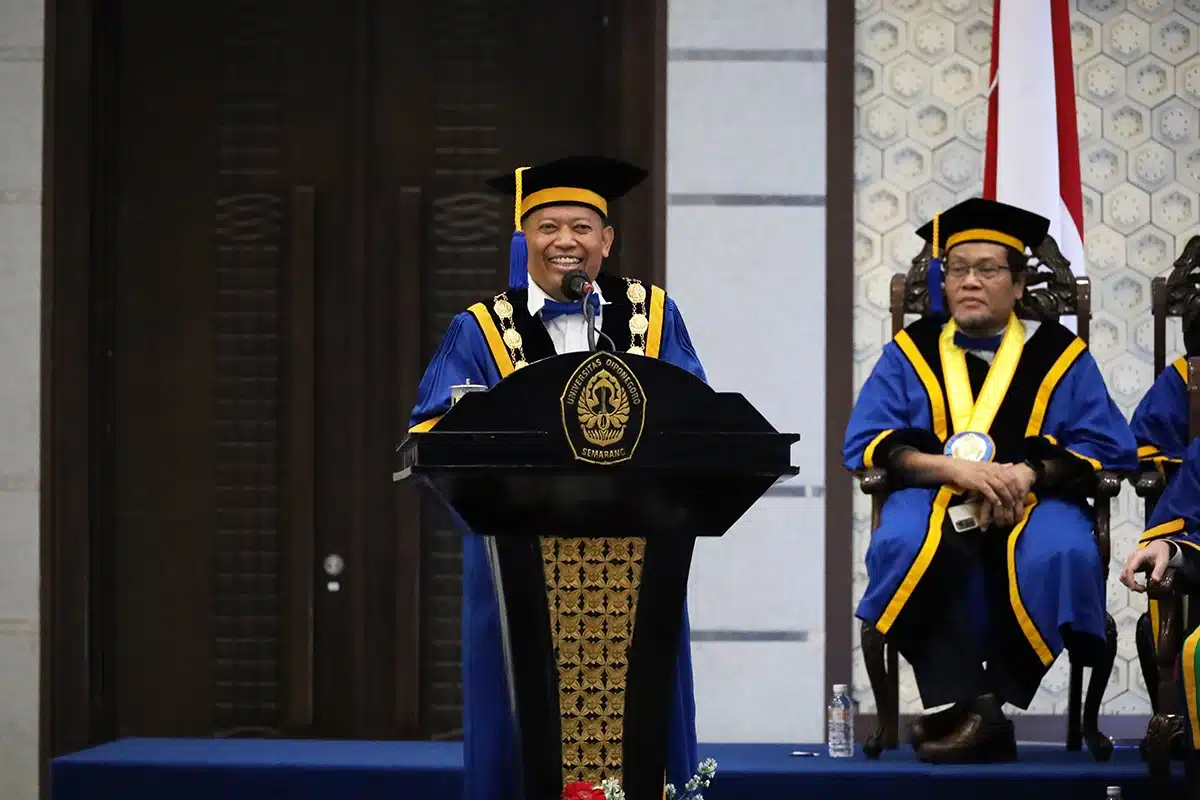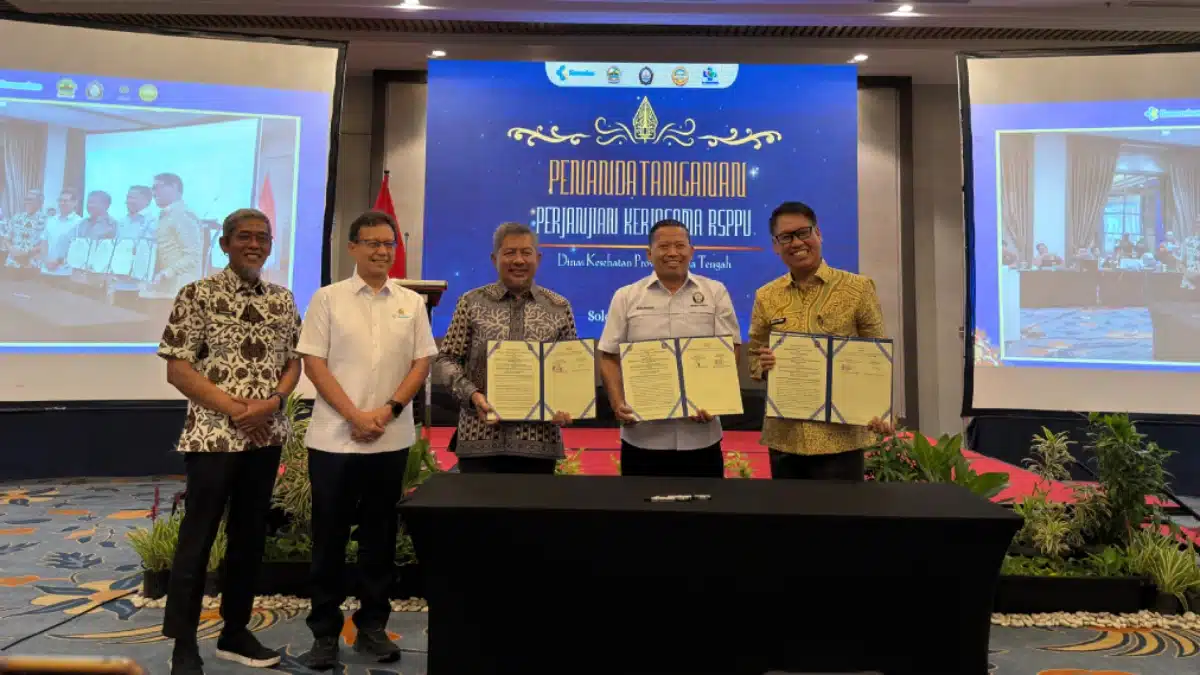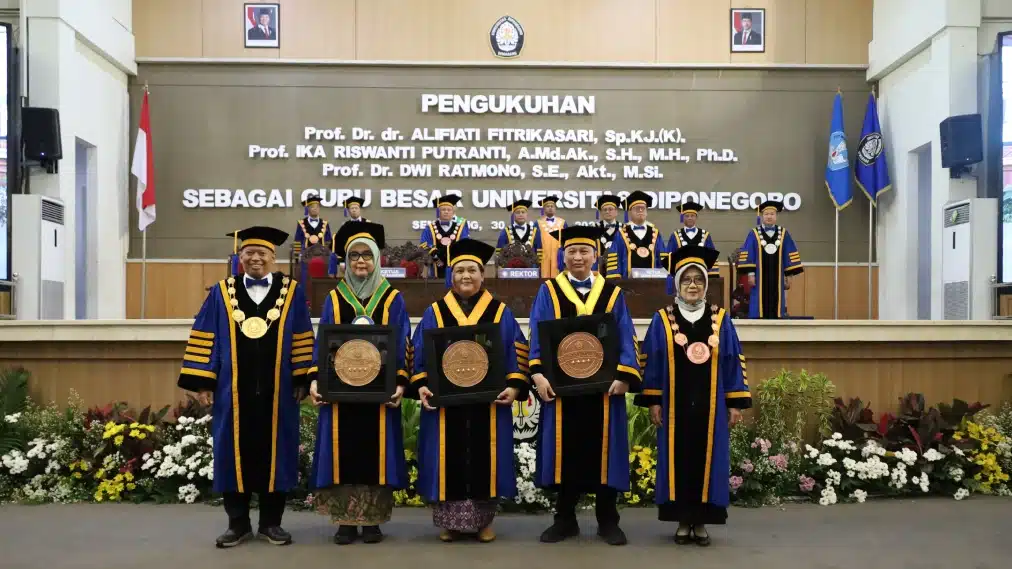The title of Professor is the highest academic honor, which provides the benefit of knowledge that continues to flow not only until retirement but throughout one’s lifetime. As a form of appreciation, Diponegoro University organized the Purna Adi Cendekia Academic Ceremony to honor the professors of UNDIP who have completed their tenure.
Professor of Law at UNDIP, Prof. Erlyn Indarti, S.H., M.A., Ph.D., is one of the professors who officially entered the retirement period during the Purna Adi Cendekia (Retirement) Academic Ceremony at Diponegoro University in 2024, held at the Prof. Soedarto, SH Building, Undip Tembalang, from 2nd to 4th April 2024.
During the academic oration of the Purna Adi Cendekia ceremony, Prof. Erlyn Indarti, S.H., M.A., Ph.D., delivered a presentation titled “A Study of Legal Philosophy as Paradigmatic Analysis.” Philosophy of Law encompasses a broad understanding of legal philosophy built on elements that include Legal Theory, Legal Practice (legislative, judicial, and executive), Legal Philosophy in a narrow sense, and Legal Science.
The Professor, who completed her doctoral studies at Flinders University, Australia, mentioned the method of building a new foundation of thought in the field of Legal Philosophy through the adoption of ideas about paradigms, a new thinking framework.
Quoting Guba and Lincoln (1994), a paradigm is composed of a network of premises whose conclusions can be drawn ontologically, epistemologically, and methodologically. Based on this method, the main paradigms include positivism, post-positivism, critical theory, constructivism, and participatory.
“Ontology concerns the nature of and what can be known about reality; epistemology concerns how to relate to reality; methodology concerns how to obtain knowledge about reality; and then method refers to the techniques used to acquire knowledge about reality,” she explained.
This lecturer at the Faculty of Law and Postgraduate Studies at UNDIP concluded, “The study of Legal Philosophy as a paradigmatic analysis is an integrated series of ontological, epistemological, and methodological studies applied in a stratal, connectional, sequential, and integral manner. Guided by the paradigm as a mental tool or framework of thinking — in order to explain, understand, reveal, and resolve a legal event or problem.” (Titis-Public Relations)










